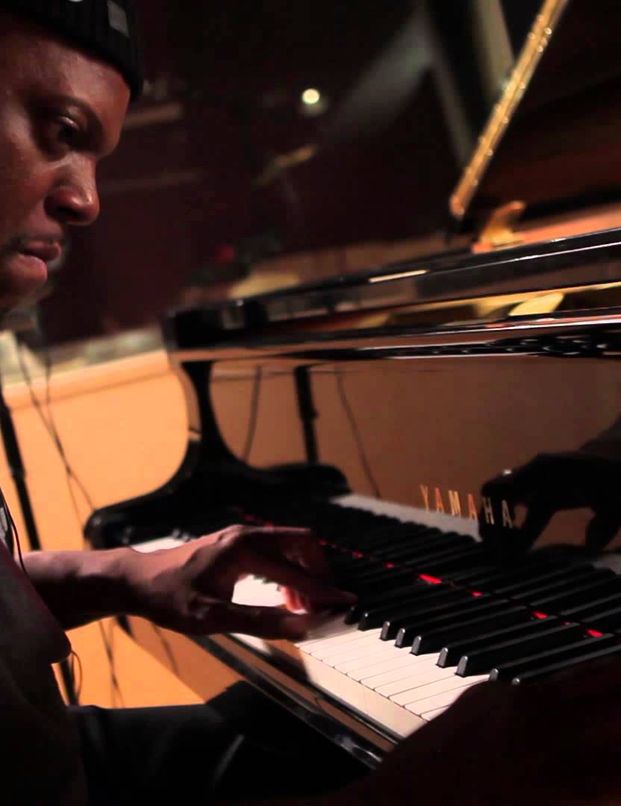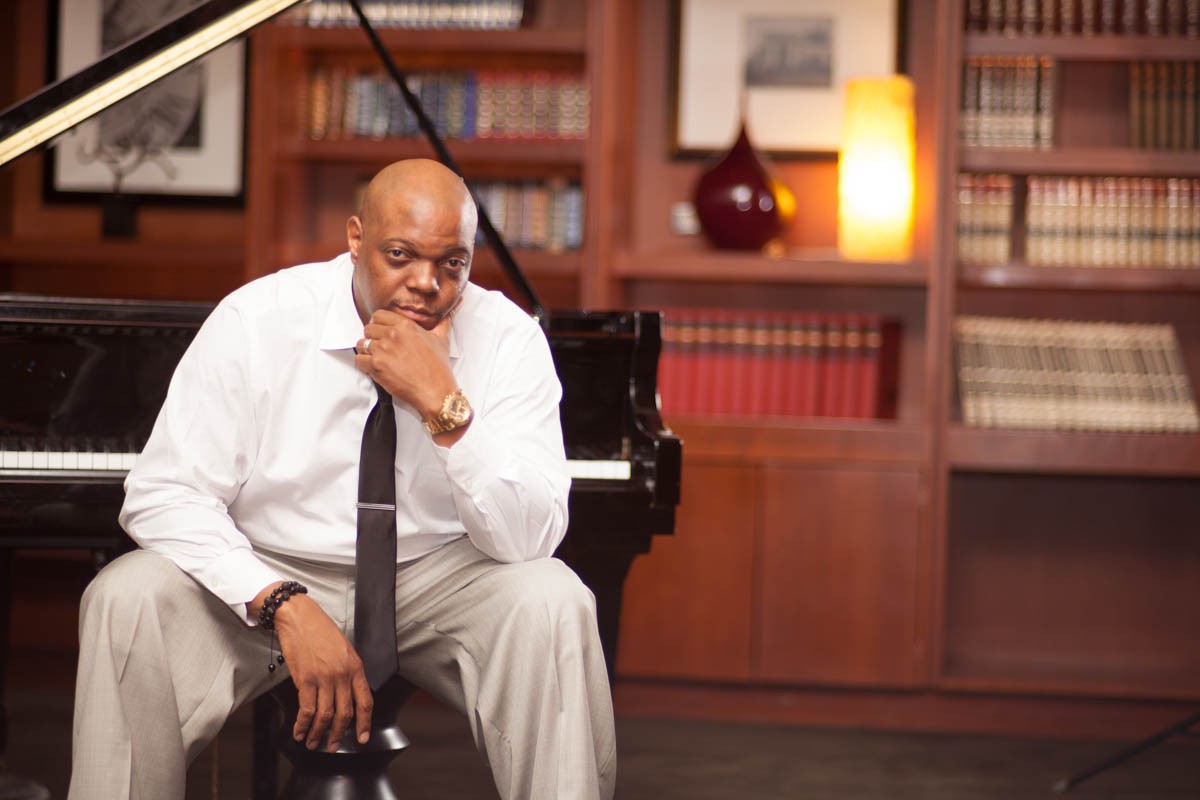Shaun Martin's musical journey began at just four years old (more on that later), but it was in the late '90s that things started to get really interesting, working for Kirk Franklin as the gospel superstar’s musical director while also co-producing his records. He has since established himself as a truly in-demand studio musician and collaborator, working with legends like Erykah Badu (on her sophomore album, 2000's Mama's Gun), and a host of well known artists including Timbaland, Chaka Khan, Yolanda Adams, and Tamela Mann.
He is also the proud owner of five Grammys - three for Best Album, two for his work with the jazz fusion phenomenon, Snarky Puppy; and in 2015, Martin released his debut solo album, the largely instrumental, jazz-infused, 7 Summers. And in his spare time? Every Sunday, he can be found doing his thing at Dallas’ Friendship-West Baptist Church, performing to thousands as the Minister of Worship.
Earlier this year, Martin was showcasing his latest demos at the Winter NAMM show in California. We ask him to tell us a little more about what he got out of the whole experience:
“I'm not sure I've ever got so much work done in so little time,” he admits, with a smile. “NAMM was great; it gave me the opportunity to connect with some old friends as well as make new friends and build new relationships, which is always a good thing. I also had the pleasure of demoing the Virtual Instrument (VI) line for Waves Audio, and present some of them for the first time. Many people weren't aware of the VIs, and I was glad that I was able to introduce the masses to another arm of this legendary company.”
The manufacturer's new VI line is one that's rapidly expanding, it seems.
“Waves are working diligently to create some very cool synths and very authentic sounding vintage keyboards,” Martin confirms. “I got involved because my booking manager, Eric Gerber, reached out to me about an opportunity that had come across his desk from a friend. Then he reached out to my manager, and we thought it was a perfect opportunity considering the fact that I didn't even know Waves had done that type of thing until now.”
Headliner learned about Waves' meticulousness in terms of plugin development on a trip to Abbey Road Studios last year; the level of detail in the sampling, and generally recreating the sonics is pretty staggering. How do the VIs do in comparison, and how many is Martin using, though?
“I use a wide variety [of VIs] considering the fact that so much of music production these days is computer based; I've never really been on the development end of it, though,” he says. “I do, however, like to compare how any VI sounds against the real instrument that it's trying to emulate. One thing that's key for me is, ‘can I get the same feeling when I hear this plugin that I get when I play the original instrument?’ So I'll play a Minimoog plugin, and play an actual Model D Minimoog; and if I get the same chills, then I'll rock with it. I did the same thing with the Waves Electric 88 VI. I compared it in its original factory setting against my suitcase Rhodes, and I was blown away by just how similar they sounded, as well as how good it actually felt! It truly warmed my heart...”

